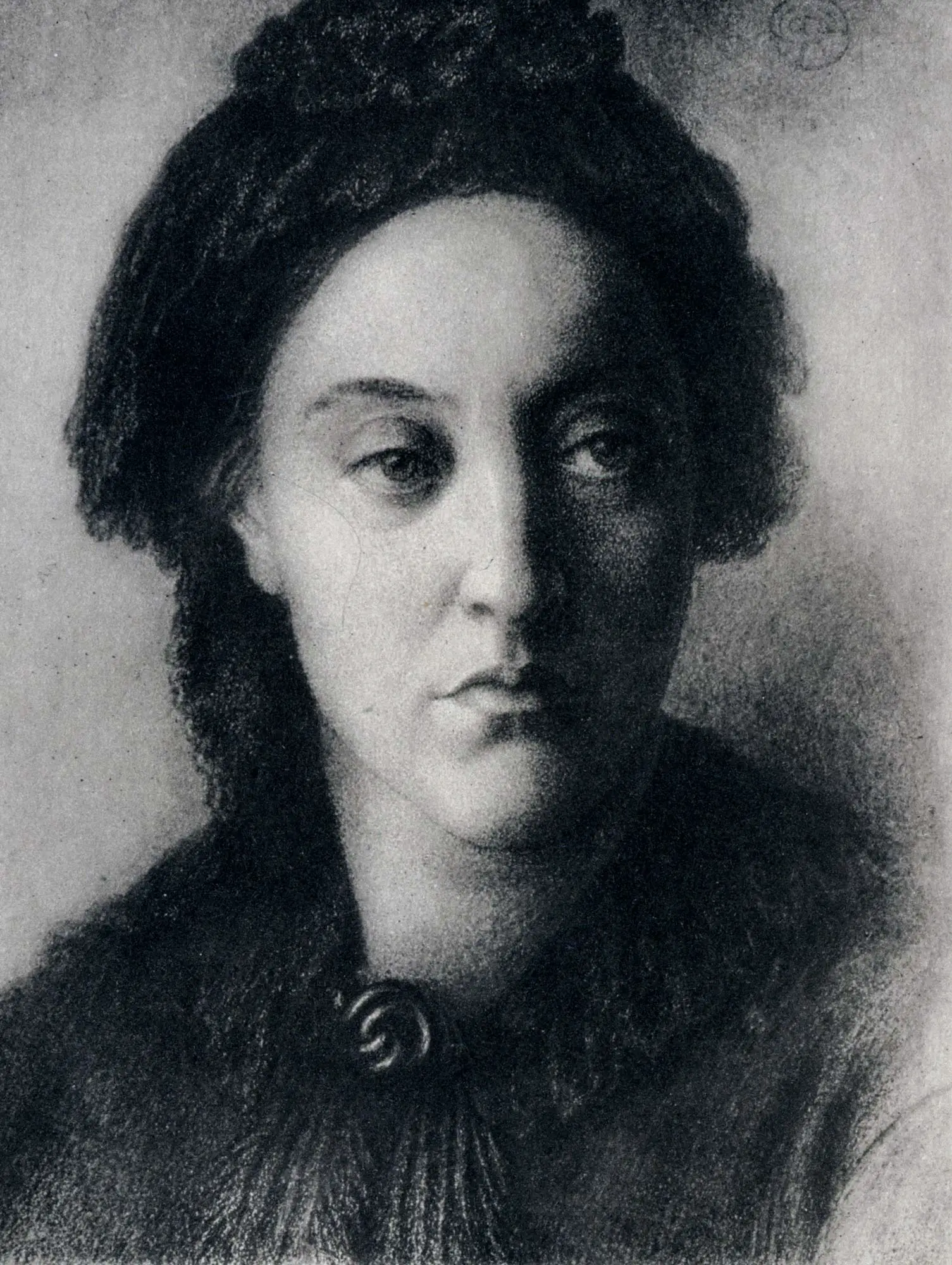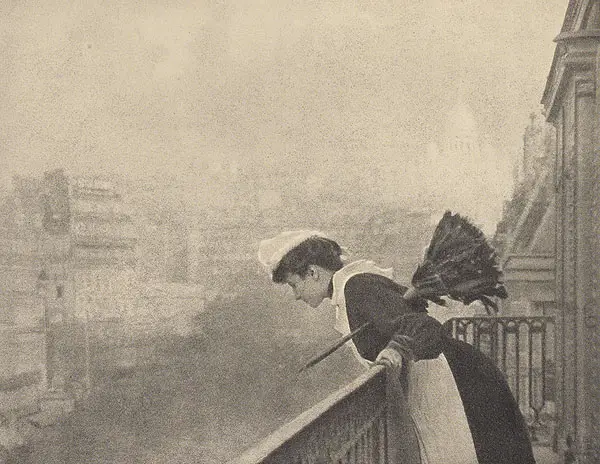
FULL POEM - SCROLL DOWN FOR LINE-BY-LINE ANALYSIS
I was a cottage maiden
Hardened by sun and air
Contented with my cottage mates,
Not mindful I was fair.
Why did a great lord find me out,
And praise my flaxen hair?
Why did a great lord find me out,
To fill my heart with care?
He lured me to his palace home –
Woe’s me for joy thereof-
To lead a shameless shameful life,
His plaything and his love.
He wore me like a silken knot,
He changed me like a glove;
So now I moan, an unclean thing,
Who might have been a dove.
O Lady Kate, my cousin Kate,
You grew more fair than I:
He saw you at your father’s gate,
Chose you, and cast me by.
He watched your steps along the lane,
Your work among the rye;
He lifted you from mean estate
To sit with him on high.
Because you were so good and pure
He bound you with his ring:
The neighbors call you good and pure,
Call me an outcast thing.
Even so I sit and howl in dust,
You sit in gold and sing:
Now which of us has tenderer heart?
You had the stronger wing.
O cousin Kate, my love was true,
Your love was writ in sand:
If he had fooled not me but you,
If you stood where I stand,
He’d not have won me with his love
Nor bought me with his land;
I would have spit into his face
And not have taken his hand.
Yet I’ve a gift you have not got,
And seem not like to get:
For all your clothes and wedding-ring
I’ve little doubt you fret.
My fair-haired son, my shame, my pride,
Cling closer, closer yet:
Your father would give lands for one
To wear his coronet.

LINE-BY-LINE ANALYSIS
STANZA 1
I was a cottage maiden
Hardened by sun and air
A ‘maiden’ is an unmarried girl or woman. The past tense of this first line creates a reminiscent tone, suggesting something happened to her for the worse thereby turning her away from this seemingly picturesque existence. The ‘sun’ and the ‘air’ create a beautiful, natural tone.
Contented with my cottage mates,
This line describes how the girl wanted nothing more from life – not a man, or wealth, or anything. Instead, she was content with her lower-class life with her ‘cottage mates’.
Not mindful I was fair.
This states that she was not aware of her own beauty.
Why did a great lord find me out,
And praise my flaxen hair?
This rhetorical question gives an insight into her regret as if she is lamenting the fact that the ‘lord’ found her and ‘praised [her] flaxen hair’. We would expect her to be elated at such compliments and look back at this recognition with pleasure.
Why did a great lord find me out,
To fill my heart with care?
The repetitive nature of the rhetorical questions heightens the tone of regret like she is mourning her previous life. The word ‘care’ may imply that she had feelings for the ‘Lord’ or, instead, she is reflecting on her carefree nature which he stole.
STANZA 2
He lured me to his palace home –
Rossetti’s use of the verb ‘lured’ makes the Lord sound sinister, predatory and animalistic. This menace juxtaposes the luxury of his ‘palace home’.
Woe’s me for joy thereof-
This line narrates how the Lord caused her great sorrow for his own joy. His use of her mirrors his predatory nature in the previous line – he is feeding off her for his own joy.
To lead a shameless shameful life,
This oxymoron encapsulates the conflicting emotions of the woman. She’s ‘shameless’ because of her newfound life of wealth and attention but ‘shameful’ as she’s aware that she’s being taken advantage of. With contextual knowledge of Victorian times, this shame she feels becomes more significant as it links to the view that women were not allowed to have sex out of wedlock and were viewed as inpure if they did.
His plaything and his love.
‘Plaything’ shows that the relationship was just temporary to the Lord and that, to him, she was nothing more than an object of his pleasure – he didn’t ‘love’ her just the pleasure she provided for him.
He wore me like a silken knot,
A ‘silken knot’ is a piece of jewellery worn like a brooch and its effect here is to signify that she was merely an accessory to him – a possession to flaunt with little underlying emotion.
He changed me like a glove;
This line is pivotal in the poem as it illustrates how the woman was permanently changed by the Lord’s selfish pursuits of pleasure. The image of the ‘glove’ repeats how she was just an accessory for the Lord to flaunt.
So now I moan, an unclean thing,
She is now viewed by society as ‘unclean’ as, in Victorian times, women who lost their virginity were viewed as in pure and having lost their innocence.
Who might have been a dove.
This line highlights just how much life the woman has to mourn. The pure, innocent image of the white ‘dove’ juxtaposes with how she is now ‘unclean’, and this contrast emphasises the extent of her loss.
STANZA 3
O Lady kate, my cousin Kate,
The narrative shifts in this stanza as the speaker addresses her ‘cousin Kate’.
You grew more fair than I:
The speaker describes that whilst she was the Lord’s ‘plaything’ she lost her innocence as well as her beauty but her cousin’s beauty grew to become greater.
He saw you at your father’s gate,
Chose you, and cast me by.
These two lines reveal why the speaker addressed Kate as ‘O Lady Kate’ at the start of this stanza. The ‘He’ is the ‘Lord’ and the speaker reveals how, upon seeing Kate, he cast the speaker away in favour of her.
He watched your steps along the lane,
Your work among the rye;
These two lines narrate how the ‘Lord’ turned his attention towards Kate and became fixated on her and the attraction that he felt for her that the speaker could no longer offer.
He lifted you from mean estate
To sit with him on high.
There is a symmetry the Lord taking away Kate now as he did with the speaker in the events of the first stanza. The fact ‘he lifted’ her away creates a power imbalance in his favour just like previously. The height in the last line is a metaphor for her elevation in the social hierarchy.
STANZA 4
Because you were so good and pure
He bound you with his ring:
The speaker implies that Kate refused to have sex with him out of wedlock, hence, retaining her purity. His attraction described in the last stanza motivated him to ‘bound [her] with his ring’ or propose to Kate. Ironically, Kate’s initial rejection of the Lord resulted in their marriage and the retention of her purity whilst still receiving the joys of living in luxury.
The neighbors call you good and pure,
This line also offers us some contextual analysis as it shows that the view of society in Victorian England was held in great esteem. The perception of the ‘neighbours’ is a metaphor for the perception of the entire Victorian society/
Call me an outcast thing.
The contrasting societal views of the two women becoming more evident with the contrast between ‘good and pure’ of Kate and the ‘outcast thing’ of the speaker. The pronoun ‘thing’ signifies her status as almost sub-human.
Even so I sit and howl in dust,
You sit in gold and sing:
There juxtaposing comforts of life are now elaborated on. The animalistic imagery of the speaker howling in the dust links with the dehumanisation in the previous line and it brutally contrasts with the pleasantness of singing and the luxury of the ‘gold’, compared to the coarseness of the dust.
Now which of us has tenderer heart?
This rhetorical question implies that the speaker is questioning how easily moved Kate is in comparison to her. The inference is that the speaker believes her own heart has become more tender and compassionate as a result of her hardship, whilst Kate’s has become less due to her life of luxury.
You had the stronger wing.
The speaker doesn’t answer her rhetorical question (the ambiguity, I think, suggests she feels it’s herself) but does conclude that Kate was stronger willed and surmises that it is this which has led to their juxtaposing outcomes in life.
STANZA 5
O cousin Kate, my love was true,
The narrator reveals that her love for the Lord was real and, ultimately, this sincerity of her love brought about her tragic downfall.
Your love was writ in sand:
The description of Kate’s love as ‘writ in sand’ is a metaphor for the lack of meaning and substance to her love, just as writing in the sand is insignificant and temporary because it gets washed away by the sea.
If he had fooled not me but you,
If you stood where I stand,
The tone of regret returns as the narrator once again laments how she was fooled by the lord. A tinge of contempt for her cousin is also evident here, as the narrator feels betrayed and envious of Kate who, in a way, benefitted from witnessing the demise of her relationship with the lord.
He’d not have won me with his love
Nor bought me with his land;
The narrator describes that if she was in Kate’s position having seen Kate be fooled like she was, she too, would not have been charmed and ‘bought’ by the Lord and his power.
I would have spit into his face
And not have taken his hand.
The narrator follows the previous lines by reinforcing the fact that, had their roles been reversed, her love would have turned into contempt for the Lord.
STANZA 6
Yet I’ve a gift you have not got,
And seem not like to get:
The narrator makes another comparison between herself and her cousin. But this time she has the upper-hand – she previously mentions Kate’s life of luxury compared to her own life of poverty, but now she has a ‘gift’ that Kate may never have.
For all your clothes and wedding-ring
I’ve little doubt you fret.
The language and structure here have an effect of belittling these material possessions and their importance. It is a touch ironic as this is what compelled the narrator to the Lord in the first place. But the main inference is that this ‘gift’ exceeds any material possession that Kate may have.
My fair-haired son, my shame, my pride,
The narrator reveals that this incredible gift is a ‘son’. With contextual knowledge, we know the extent of the importance of having a son in Victorian times – to continue the family name and inheritance. Her son is her ‘shame’ because of the out-of-wedlock sex and loss of innocence he personifies, but his historical significance and the connection between mother and baby also make him her ‘pride’.
Cling closer, closer yet:
Your father would give his lands for one
To wear his coronet.


